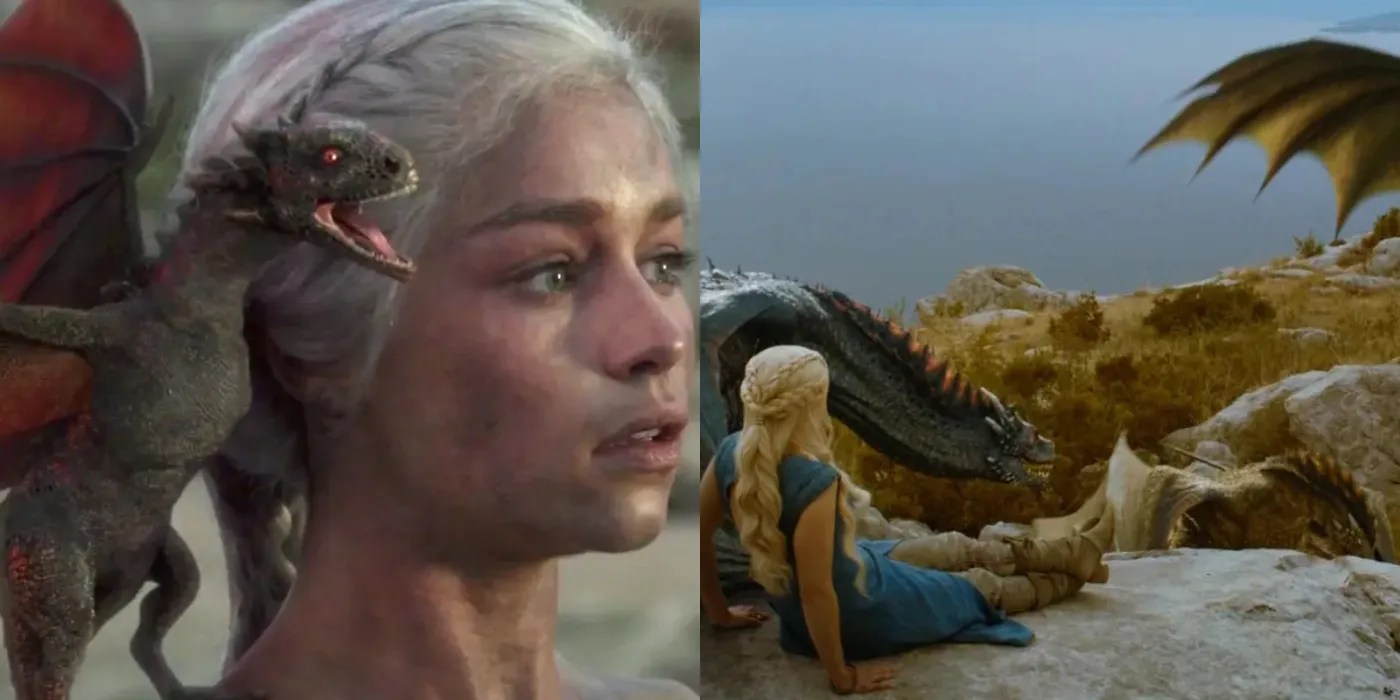In the fantastical world of George R.R. Martin's A Song of Ice and Fire and its television adaptation Game of Thrones, Daenerys Targaryen stands out as a formidable character, not just for her ambition but also for her bond with her dragons. These majestic creatures are more than mere beasts; they symbolize power, freedom, and the Targaryen legacy. The names of Daenerys's dragons carry deep meanings and are steeped in lore, representing the culture and history of House Targaryen.
From their hatching to their fierce loyalty, Daenerys's dragons have become iconic figures in both the books and the television series. Each dragon possesses unique traits and characteristics that not only reflect their names but also Daenerys's journey as the Mother of Dragons. Understanding the significance of their names enhances the appreciation of their roles in the story and the overall narrative of power dynamics in Westeros.
In this article, we will delve deeper into the names of Daenerys's dragons, exploring their meanings and the connections they have to the Targaryen lineage. We will also answer frequently asked questions about these legendary creatures, shedding light on their impact on Daenerys's character development and the story as a whole. Join us as we embark on a journey through the skies of Westeros, discovering the secrets held by Daenerys's dragons.
What Are the Names of Daenerys's Dragons?
Daenerys Targaryen is known for her three dragons, each with a distinct name that resonates with the Targaryen tradition. Here are their names:
- Viserion
- Rhaegal
- Drogon
Each name has a special significance, often reflecting the Targaryen heritage and the personal connections Daenerys has with each dragon.
What Do the Names Mean?
The names of Daenerys's dragons are not arbitrary; they hold profound meanings that reflect their origins and traits.
- Viserion: Named after Daenerys's deceased brother, Viserys Targaryen, the name signifies a bond with her family and the past.
- Rhaegal: This dragon is named after Rhaegar Targaryen, another of Daenerys's brothers, symbolizing nobility and the weight of legacy.
- Drogon: Named after her late husband Khal Drogo, Drogon represents strength, passion, and the fierce spirit of the Dothraki culture.
How Do Daenerys's Dragons Reflect Her Character?
As Daenerys evolves throughout the series, her dragons embody various aspects of her personality and growth. They start as innocent creatures needing protection but grow into powerful beings that represent her strength and determination. The dynamics between Daenerys and her dragons illustrate her journey from vulnerability to empowerment.
What Are the Unique Characteristics of Each Dragon?
Each of Daenerys's dragons possesses unique traits that set them apart from one another, making them integral to her identity.
- Viserion: Known for his striking cream and gold scales, Viserion is often seen as the most gentle of the three, yet he has a fierce loyalty to Daenerys.
- Rhaegal: With dark green scales, Rhaegal is often associated with bravery and is known for his intelligence during battle.
- Drogon: The largest and most aggressive, Drogon boasts black scales with red eyes. He is often considered Daenerys’s favorite and symbolizes her fierce determination.
How Do Daenerys's Dragons Impact the Story?
The presence of Daenerys’s dragons significantly alters the course of events in both the books and the show. They act as symbols of her power and influence, often turning the tide in battles and political negotiations. Their existence challenges the norms of the world they inhabit, instilling fear in her enemies and awe in her followers.
What Role Do the Dragons Play in Daenerys's Rise to Power?
Daenerys's dragons play a pivotal role in her quest for the Iron Throne. They serve not only as weapons of war but also as symbols of her legitimacy as a Targaryen. The dramatic imagery of her dragons soaring through the skies has become synonymous with her identity, reinforcing her title as the "Mother of Dragons."
Why Do People Connect with Daenerys and Her Dragons?
The bond between Daenerys and her dragons resonates with fans on multiple levels. It symbolizes the complex relationship between power and responsibility, as well as the struggle for identity. Many viewers and readers find themselves captivated by Daenerys's journey, paralleling their own struggles for acceptance and strength.
What Lessons Can We Learn from Daenerys and Her Dragons?
Daenerys's relationship with her dragons teaches valuable lessons about leadership, sacrifice, and the importance of understanding one's heritage. As she navigates the challenges of ruling and the moral dilemmas associated with power, her dragons serve as a reminder of her roots and the legacy she carries.
Conclusion: The Legacy of Daenerys's Dragons
Daenerys's dragons are far more than mythical creatures; they are integral to her story and the narrative of A Song of Ice and Fire. Their names, characteristics, and the bond they share with Daenerys reflect the complexities of power, identity, and legacy in a world fraught with conflict. As we bid farewell to this epic tale, the legacy of Daenerys and her dragons will undoubtedly remain etched in the hearts of fans, symbolizing the eternal struggle for power and the unbreakable bonds of family.
You Might Also Like
Tucker Carlson's Children: A Glimpse Into The Lives Of The Carlson OffspringUnveiling The Mystery: Who Is Robert Greene's Partner?
Exploring The Life And Legacy Of Rosalie Macchio
Exploring Jeff Lazkani's Net Worth: A Financial Journey
Unraveling The Mystery: Is Simone Biles Pregnant?
Article Recommendations
- Dive Into The Sensual World Of Mydesi 49com
- Discover The Ultimate Guide To Mydesi Website
- Latest 9xmovies Press And Updates


